Mobile clinics are key to protecting lives in the West Bank. “Cooperation with PCPM is crucial”
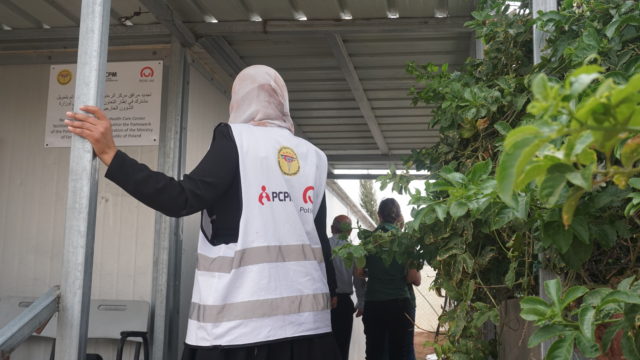
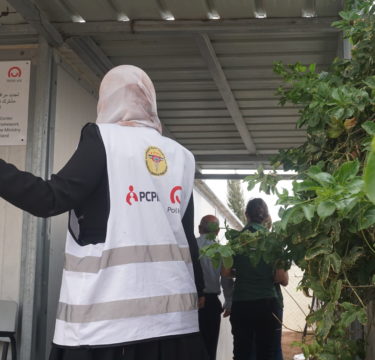
PCPM has been supporting the operation of mobile clinics run by the Palestinian Medical Relief Society (PMRS) for the past three years. Thanks to our support, residents in 32 villages in the West Bank have access to primary and specialized medical care. The PCPM provides for the purchase of essential medicines, dressing supplies, and medical equipment, as well as the renovation of rooms for receiving patients.
For many communities in Palestine, the PMRS is their only chance to access medical care. They are far from major cities, and access to them is difficult. Only mobile clinics can reach them. Women in particular suffer from this, as they lack access to prenatal testing and gynecological care.
– We work in difficult and sensitive areas, such as Jenin and Hebron. Hebron is the most populated area in the country. We have communities that are behind a wall. This means they don’t have access to medical services. We go to them and help them, says Dr. Mustafa Barghouti, founder of PMRS.
The Palestinian Medical Relief Society is one of the largest health NGOs in Palestine. It was founded by Mustafa Barghouti in 1979 to provide medical and health services. As a result of the deteriorating health situation in Palestinian autonomy.
– Many women never had the opportunity to get prenatal tests and thus make sure their baby was healthy. It was only through cooperation with PMRS that women in a village such as Wadi al Reem were able to be screened, says Ewa Jakutajć from PCPM.
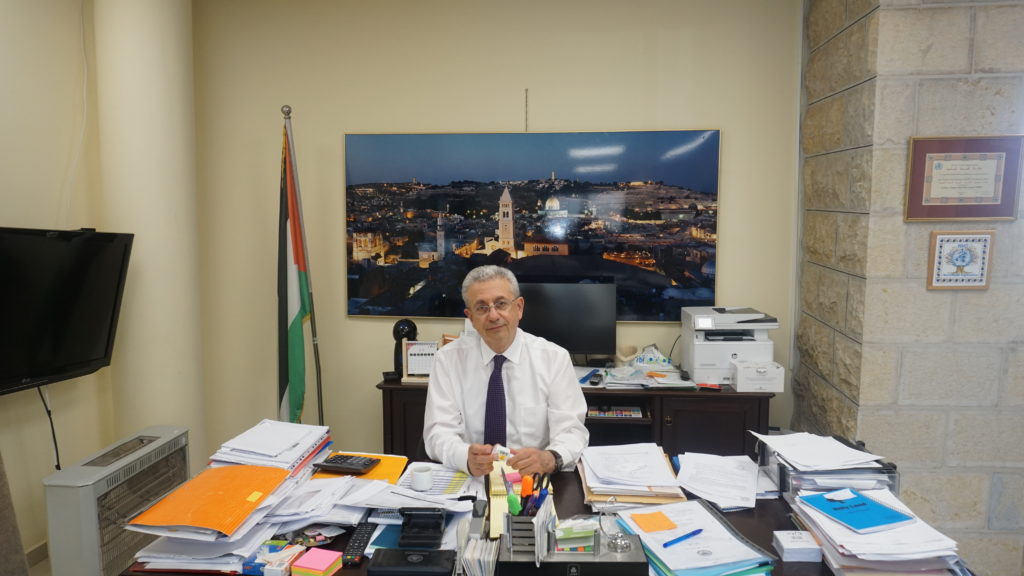
“PCPM is a key partner”
– We work with several partners who understand our work. However, projects with PCPM are unique. Your organization is very open to our ideas, says Dr. Mustafa Barghouti.
According to the PMRS founder, it is very important that PCPM listen to the needs of people on the ground.
– People who face different challenges daily know best what they require. The project to support mobile clinics was developed after consultations with our partner organization and residents of the project areas, says Ewa Jakutajć from PCPM.
– Your foundation does not say what we should do but asks what we require. We indicated where we had deficiencies and tried to fix them. PCPM helps us run mobile clinics in Area C in the West Bank. This is a very poor area and people are completely deprived of access to medical care. The project provides us with medicines and specialized equipment, says Dr. Mustafa Barghouti.
Restoring dignity
Mobile clinic patients are admitted to buildings that are not always adequately equipped to serve as clinics. As part of the project, PCPM is renovating and revitalizing the premises so that they provide privacy and dignified conditions for all patients. PMRS has mobile teams that travel daily to villages with difficult access to health services. As Dr. Mustafa points out, 14 teams are the minimum to reach each village once a week.
– When we said that our car was old and breaking down all the time, the PCPM gave us a new vehicle. When we said that the places where we receive patients do not have adequate facilities, they helped with renovations. Such measures are very important because they’re not always just about treatment. Patients need to feel dignified that they are being received in proper conditions, Mustafa Barghouti stressed.
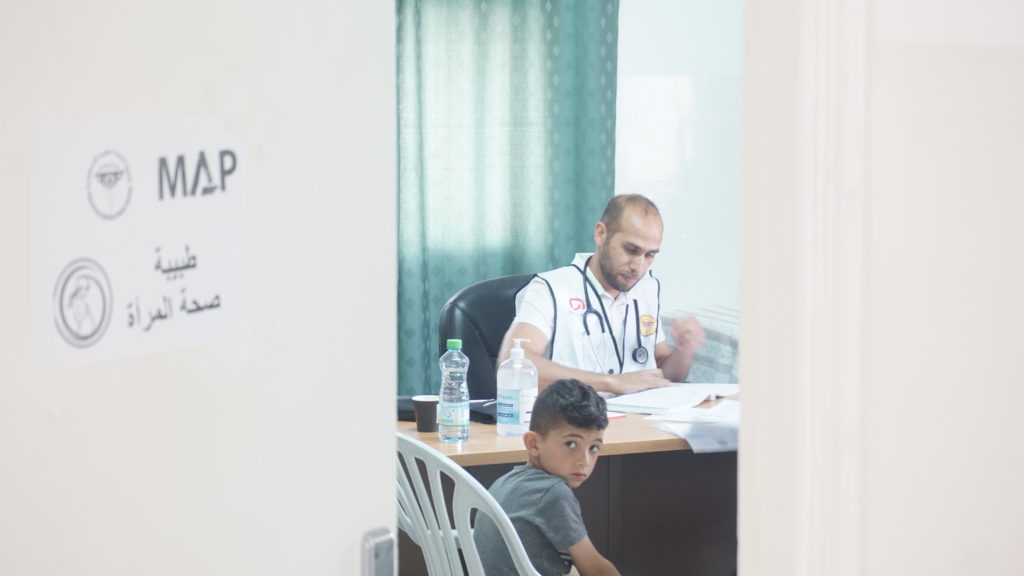
Endless needs on West Bank
Unfortunately, with every problem solved, two more arise. Very many Palestinians are dying of diabetes, cancer, or hypertension. PMRS depends on donor support, but it is never permanent.
– Our priority is to keep the mobile clinics functioning. Therefore, we need to keep the vehicles that commute to these clinics operational. Many of our vehicles are old and wear out in no time, and often they simply run out. Unfortunately, we do not have a steady source of funding. Many donors come and give us donations, sometimes for six or eleven months, explains Dr. Barghouti.
As Mustafa Barghouti stresses, “We need to expand and increase our programs for non-communicable diseases, hypertension, diabetes, heart disease, and early detection of cancer.”
– Many people in the West Bank die due to a lack of a proper diagnosis. Early detection of non-communicable diseases allows for appropriate treatment, which can save lives, Ewa Jaktujać stressed.
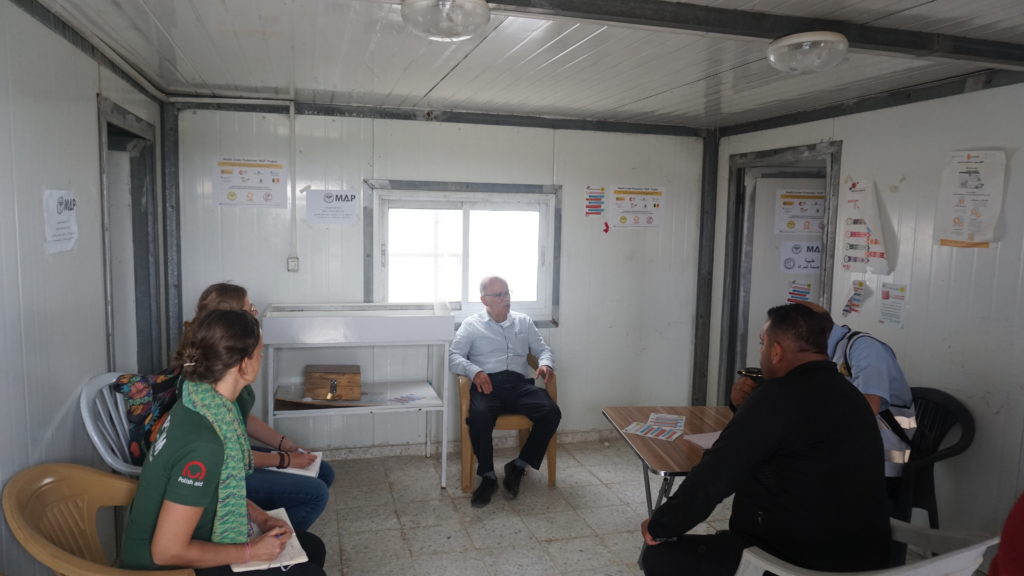
“Prevention is very important.”
– We are also working in the field of prevention. We need support to develop our screening programs better and diagnose. For example, cancer, diabetes, or hypertension at an early stage – says Mustafa Barghouti.
This will prevent people from having more complications, Dr. Mustafa added. According to him, the third priority of the PMRS is training people in emergency medicine.
As Mustafa Barghouti stressed, the time from the incident to the delivery of the injured person to the hospital is very long. Often, it depends on the first few minutes whether a life can be saved. Unfortunately, Palestine lacks trained personnel to meet the demands of an ever-increasing population.
Responding to these needs, the PCPM also provides training in procedures related to the comprehensive evaluation and management of trauma patients, as well as instructor courses. It is also providing equipment that will enable the highest-quality training in the future.
A project of the PCPM Foundation, funded by the Polish MFA program.